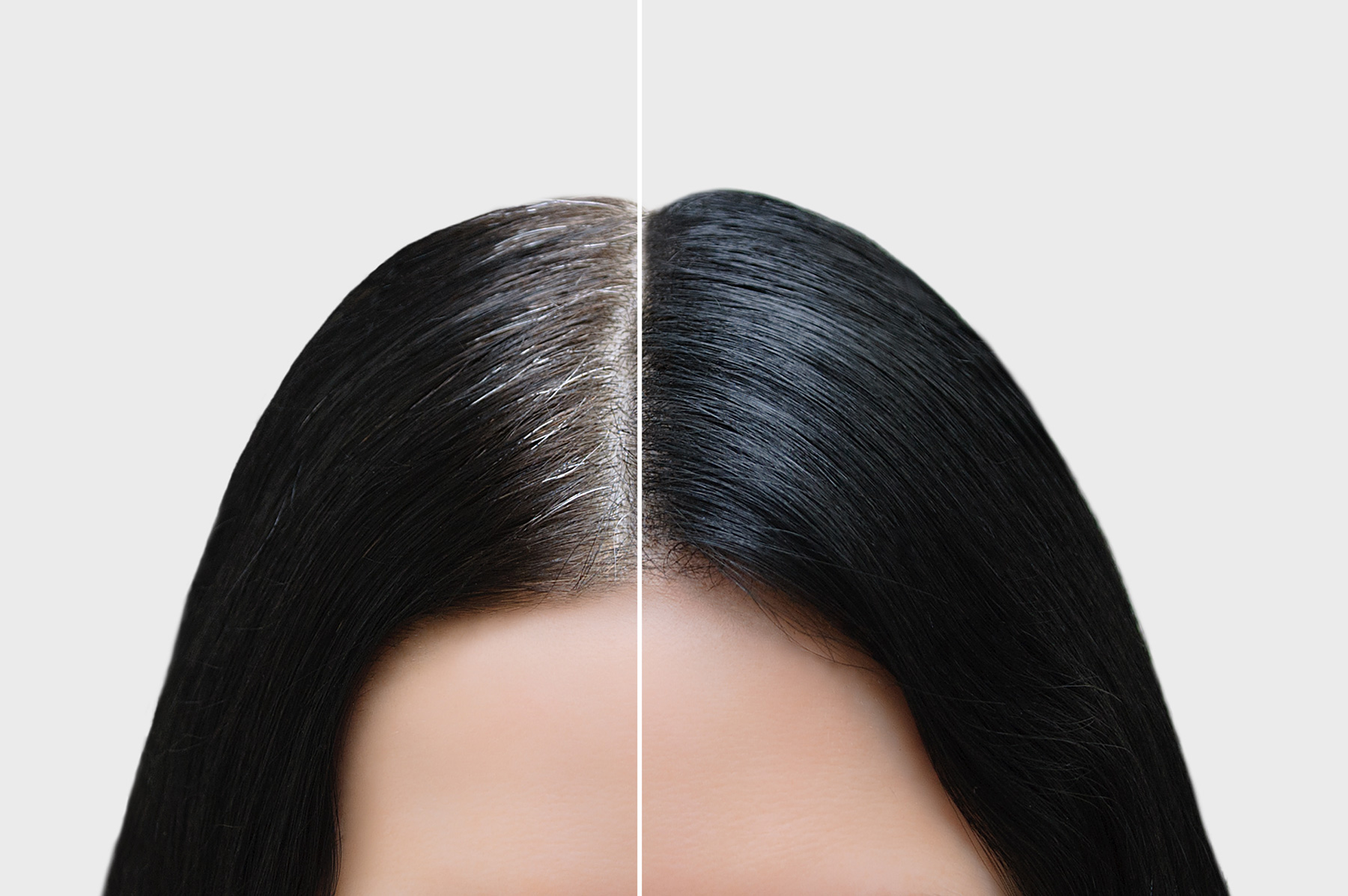Medical and health-related causes
Unfortunately, there are a variety of health issues that studies have shown to affect the colour of your hair, from IBS and anaemia to thyroid complications and chronic conditions like vitiligo. In cases like this, it’s important to consult a medical professional and follow a treatment plan to lessen the effects on your body (and hair).
Poor diet and nutrient deficiency
Now, we’re all guilty of not eating enough fruit and veg (again, mother was right), but if your body is deficient in key nutrients like vitamin B12, iron and copper the imbalance will show itself in your hair and skin.
Put down the styling tools and avoid chemicals
Our favourite go-to straighteners and curling irons might be ideal for a special night, but the overuse of heat and chemical treatments, like perms or relaxers, will weaken hair fibres and could damage your scalp in the long-term – not the ideal conditions for a rich and vibrant head of hair.
Stress
Take a breath because one of the best ways to ease the greying process is by cutting out any unnecessary stress from your day. Extended periods of stress and exhaustion take a toll on your body and lower your vitamin B levels, which is linked to going grey. Plus, pulling your hair out on a regular basis isn’t going to help matters. Just stay calm.
Okay, but how does a lady go about camouflaging it with some full grey hair coverage?

